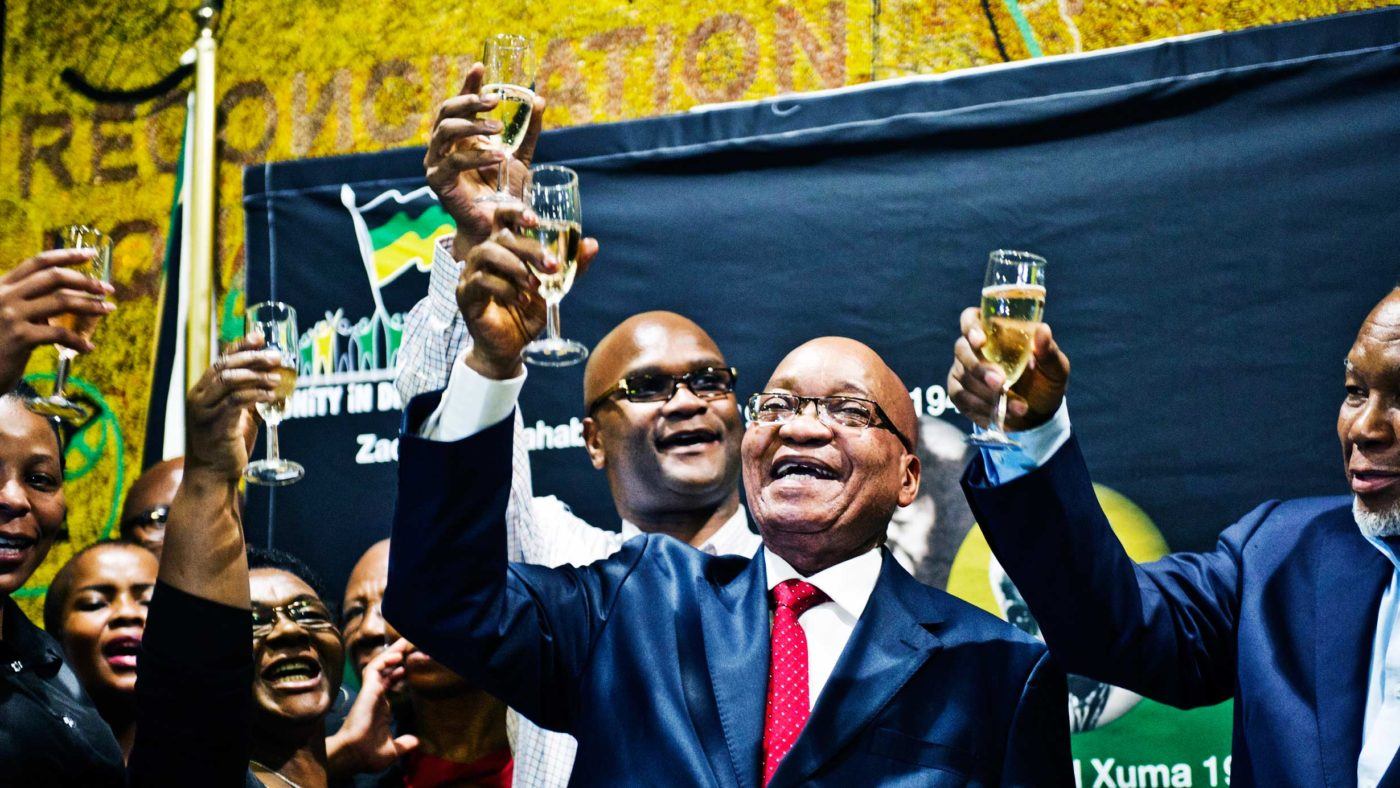Since its transition to majority rule in 1994, South Africa has enjoyed many years of almost universal adulation. Having lived in South Africa for a decade, I felt that much of that praise was undeserved. I got my fair share of criticism for pointing out what has eventually become conventional wisdom – South Africa is not an example for other societies to follow and its government is corrupt, inept and immoral. The outcome of last week’s local election suggests that the South African electorate is slowly waking up to the immense damage that the ruling African National Congress has inflicted on the country.
South Africa has never been the vaunted miracle portrayed by the sympathetic global press. To start with, consider some of the most basic measures of human wellbeing. Life expectancy in South Africa was 62 years in 1994. Last year, it was 57 years – a reduction of 7 percent. Meantime, global life expectancy increased from 66 years to 72 years – an increase of 8 percent.
The main reason for the collapse of life expectancy was the unchecked spread of HIV/AIDS and the government is to blame. Thabo Mbeki, who oversaw domestic policy under Nelson Mandela before becoming President himself, denied any connection between HIV and AIDS, and did little to stop the spread of the disease. As such, prevalence of HIV/AIDS exploded in the late 1990s and early 2000s.
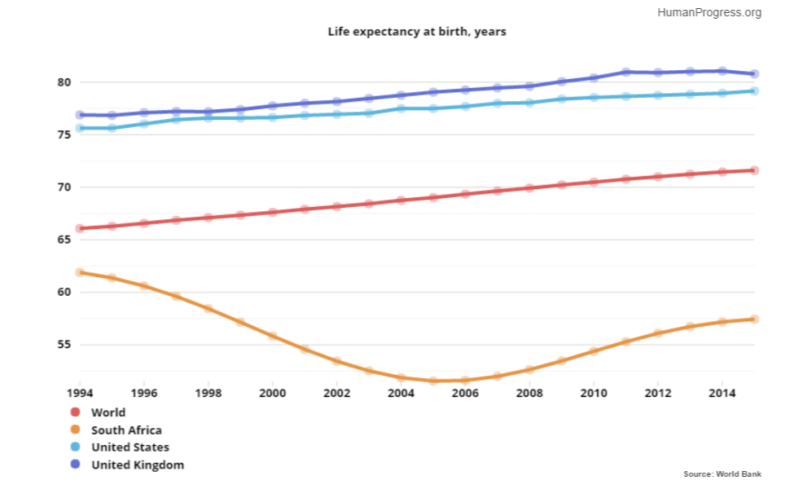
The decline in life expectancy was exacerbated by other government failures. For example, the country continues to suffer from a very high murder rate. While murders are rarer than they used to be in the 1990s, the government is responsible for demoralizing the police force through race-based hiring and promotion.
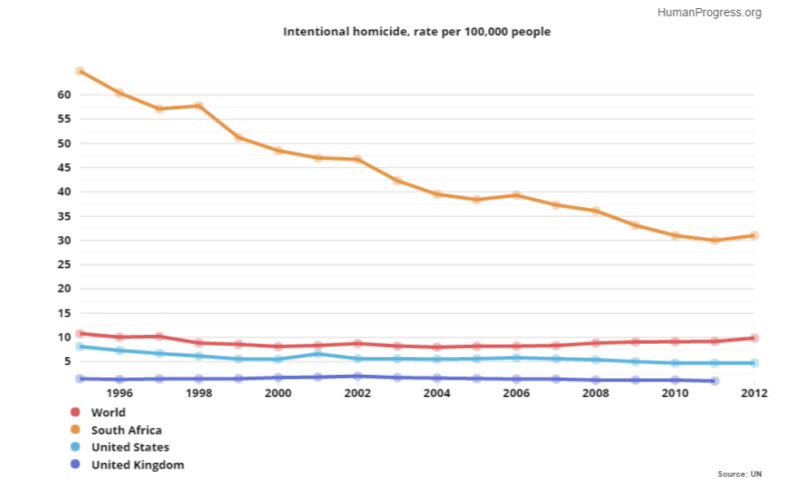
Even infant mortality, which has been declining throughout the world, remains relatively high. Consider that in 1994, the global infant mortality rate was 29 percent higher than that in South Africa. By 2015, South Africa’s infant mortality rate was 6 percent higher than global average. That is a result of declining public healthcare, which suffers from mismanagement and corruption.
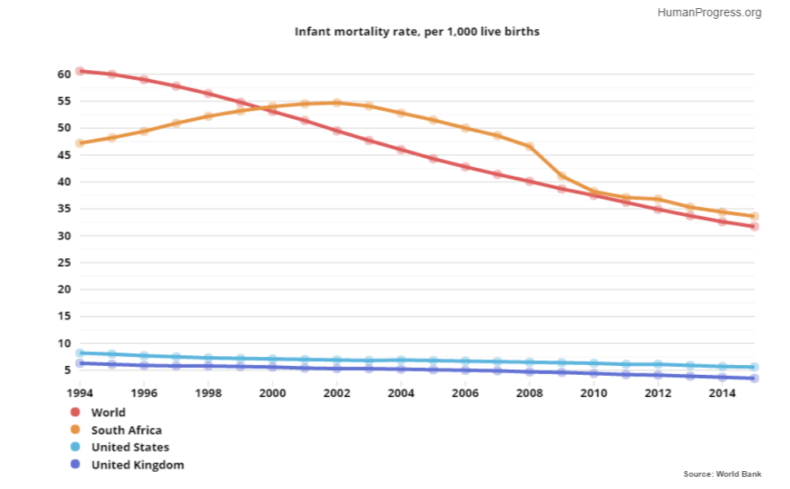
Corruption, of course, has gotten worse over the last two decades and, as I have noted elsewhere, the same can be said of the rule of law, favoritism in decision making by government officials, wastefulness of government spending, diversion of public funds, transparency of government decision making and, inevitably, trust in public officials.
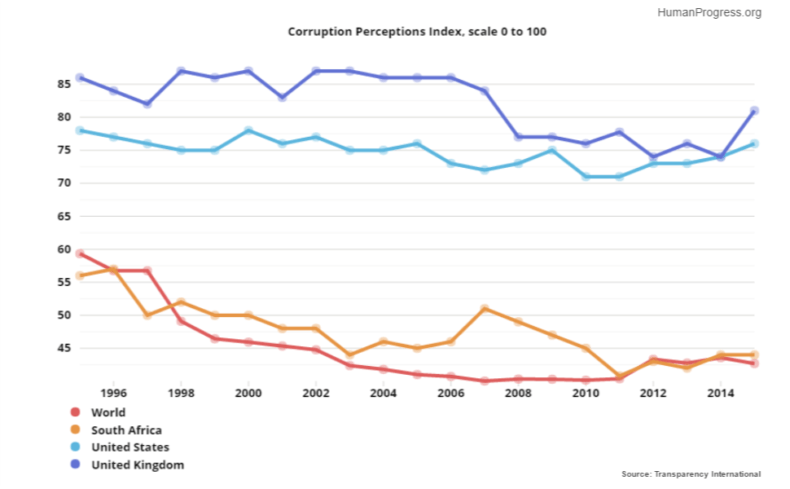
Economically, South Africa’s performance has been, at best, mediocre. South Africa’s average annual income per capita adjusted for inflation and purchasing power parity was 54 percent of the global average in 1994. By 2015, that rose to 57 percent. If the current trend continues, the gap between South Africa and the world average will continue until the year 2342!
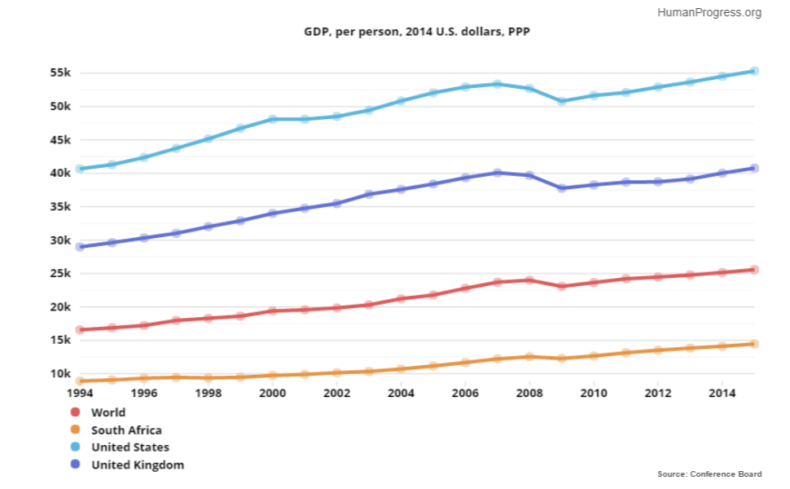
Internationally, the country has cosied up to Castro’s Cuba, Gaddafi’s Libya and Saddam’s Iraq, prompting one esteemed American commentator to call the country a “rogue democracy”. The growing global disenchantment with South Africa is often blamed on the rapidly declining quality of the country’s government. And, true enough, Nelson Mandela was a better president than Thabo Mbeki and Mbeki was better than the current leader Jacob Zuma. But, all three were democratically elected by voters who preferred to vote along racial lines – the ANC is credited with bringing about majority rule – rather than cast their votes for a more competent and less corrupt government.
Clearly, South Africa can do better. But, in order to do so, the country will have to embrace “normal” politics that put a premium on concrete government deliverables. As such, the results of the local elections, which took place last week, look promising. While the ANC has, once again, polled at more than 50 percent nationally, the party has lost majority control on city councils in Pretoria, the country’s capital, Johannesburg, the country’s economic powerhouse, and Port Elizabeth.
The Democratic Alliance, led by Mmusi Maimane, has made substantial gains. Prior to last week, the DA was only in charge of Cape Town. If it is able to form local coalitions, the DA will be able to show to South Africans living in other large cities that a more efficient and less corrupt government is possible. Once that happens, national elections in 2019 could turn out to be a close run affair. If the ANC falls below 50 percent, it might have to relinquish power for the first time in 25 years. Will the ANC go quietly or hang on to power like Robert Mugabe did in Zimbabwe? That, alas, is a topic for another column.

